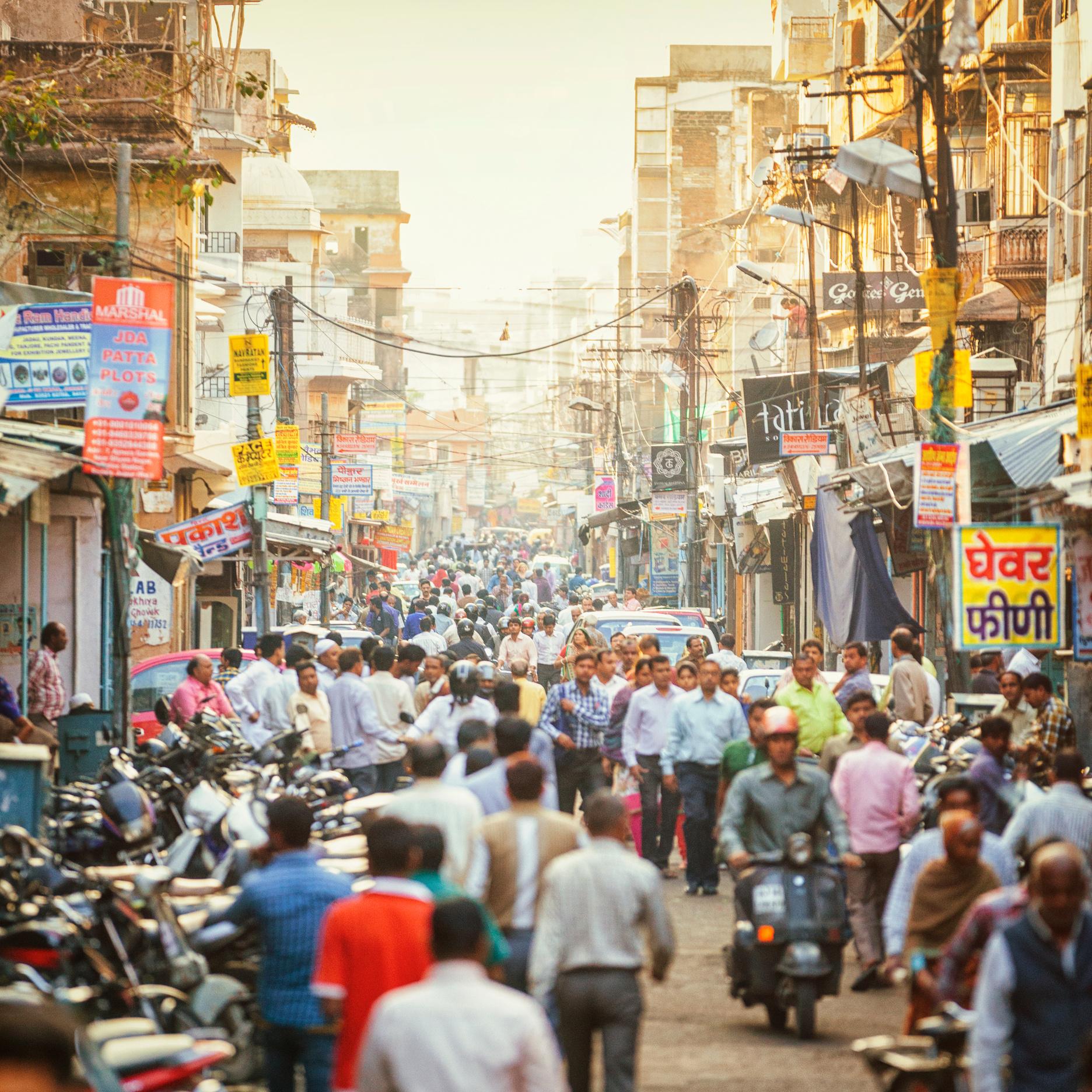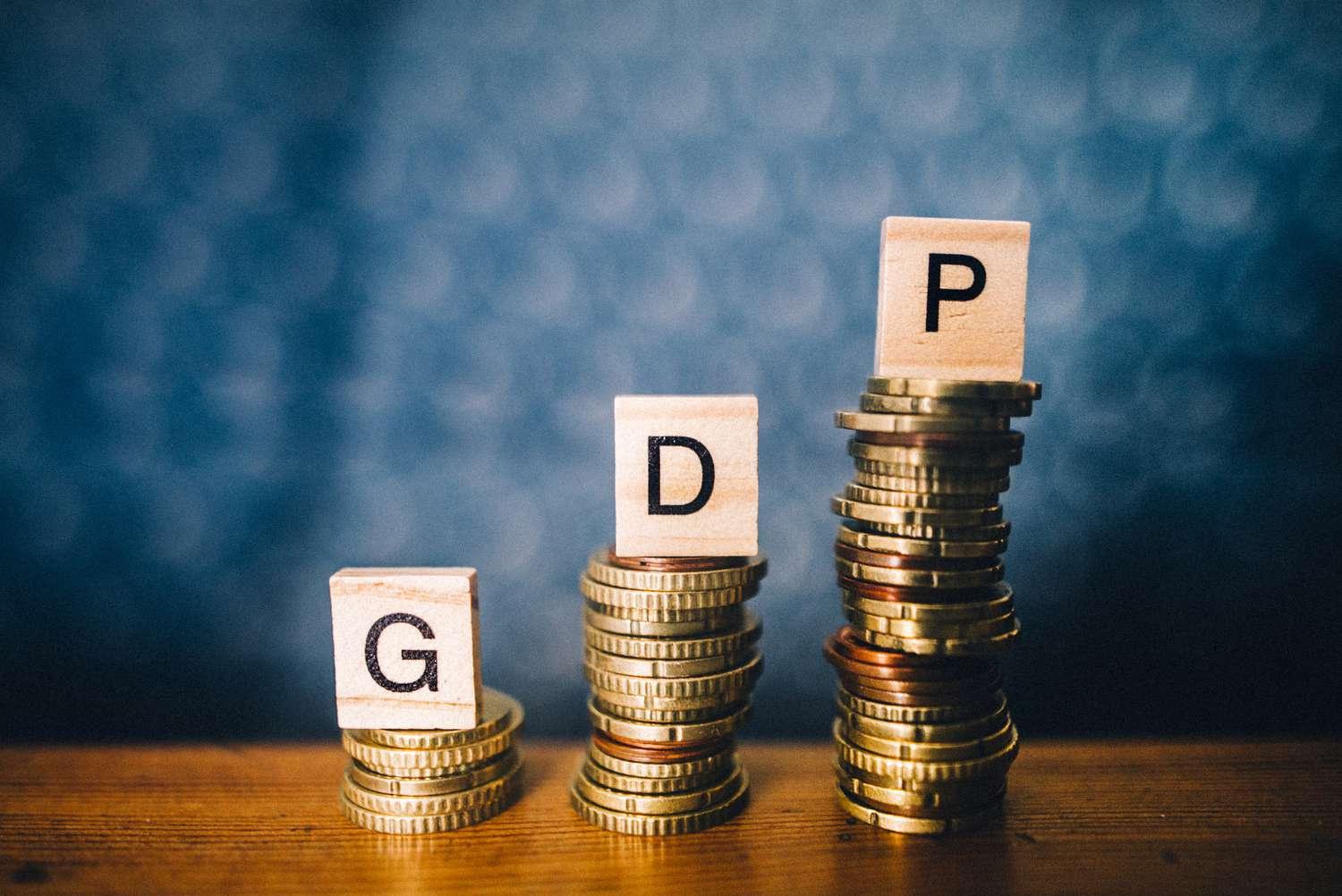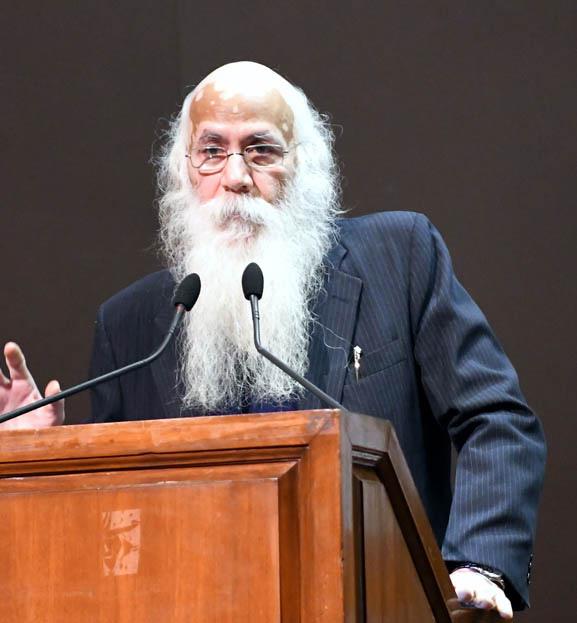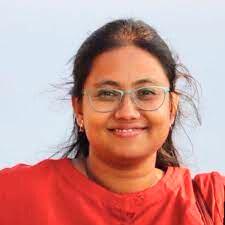





The Indian economy is growing at a much faster rate compared to most other global economies. It is already a $ 3.5-trillion economy, with the RBI putting the GDP growth rate at 6 5 per cent for the current fiscal, 2023-24. The signs are all there, with the first quarter recording a 7.8per cent rate, the highest in a year and post-Covid. We are moving towards achieving a $ 5-trillion economy, soon – though delayed, again due to Covid -- and aspiring to emerge as the No 2 economic power in the world by 2050, or even earlier.
The world over, economic growth is almost always measured in terms of GDP figures. Simultaneously, a school of thought has emerged that the GDP way of measuring growth hides more than it says. It is equally so in the case of per capita income-growth, especially in the case of a populous and a diversified country as India There are multiple inequities, which the socio-economic programmes of successive governments at the Centre and in the states have tried to bridge but with varying degrees of success Indications are that the gap keeps widening even as the GDP and per capita growth-rates get moving up the graph.
There is also the socialist era sloganeering of the ‘rich getting richer and the poor becoming poorer ’ , returning to the centre-stage of the nation’s economic debate. The temptation among economists is to measure past achievements and present projections in terms of prevailing prices and costs to make them read real and realistic
Livelihood to Lifestyle
What does it all entail for the overall health of the economy, over the short, medium and long-terms? Conventional wisdom has it that as the GDP grows, governments are encouraged to spend / invest more and more on social and physical infrastructures Apart from roads, railways and ports, there is greater governmental spending especially in Healthcare and Education. There are also all other forms of ‘social security, or freebies, including cash doles and other forms of subsidies for food and what are becoming increasingly ‘essential’ for sustaining a minimum life-style.
What constitutes life-style, in the place of ‘livelihood’ as a yard-stick keeps getting re-defined and refined, officially or in public evaluation, by the year. The unsaid focus of government-funded social welfare schemes is to provide for the dignity and self-esteem of the individual, high or low, rich or poor, which in its times contributes to overall national growth And the Centre, which often used to chide state governments for what it used to dub as ‘freebies’ is increasingly resorting to aping them at the national-level, especially schemes initiated in southern Tamil Nadu, which have shown quantifiable results But is enough being done? If so,how -- and how much? If not, why not?
GSDP and Per Capita Consumption
There is also the periodic question of GSDP and state-centric arguments on growth and inequities funding from the Centre, oftentimes linked to population growth or deceleration. The linkages are as much economic as they are political
It is not a coincidence that better-performing states had started off early on education, employment and population-control Their domestic consumption, driven in turn by awareness and aspirations are also markers. Should they be encouraged to perform better all-round, as much on consumption as in development?
This question is seldom addressed. It remains to be seen if the new Finance Commission will have an opportunity to look into such anomalies, if they could be called so
Energy, Environment
Even as these questions linger, there is the emerging scenario where once-overlooked factors like energy security and environmental concerns have become a major component in any growth-related discourse, from the global to national to village-levels Just as unplanned growth is unsustainable and unsupportive of the poor and marginalised sections, they are the victims of planned and sustainable growth models – all of which however continue to boost the GDP all the same. This, they too benefiting immensely from such developmental schemes addressing physical infrastructure upgrades.
Truth be acknowledged, in what are now developing economies, the question was answered long before countries like India got to address them – in favour of GDP It was not necessarily against sustained socioeconomic growth, which also brought out more and more people and communities out of the rot in which their earlier generations had settled for generations and centuries.
The issues are complex, as the kind of natural resources that those nations have had, and the relative population. In India, their earnings, purchasing-power and aspirations are not growing as fast and as believed to be. They continue to have their own say, even as India has moved away from the post-Independence ‘socialist model’ to the postReforms, market-orientation
All of it boils down to the Question:
‘Is GDP-centric Growth, Right or Wrong? Are they Sustainable or Not?’
Programme
5:15 PM Registration & High Tea
6:00 PM Welcome Address
Gp Capt R Vijayakumar (Retd), VSM Executive Director, Madras Management Association
6:05 PM
Overview
Mr N Sathiya Moorthy Convenor, Policy Matters - Chennai
6:10 PM
Address by the Speakers
Mr Arun Kumar
Retd Prof of Economics, JNU
Mr M R Sivaraman, IAS (Retd)
Former Revenue Secretary, Govt of India & Former Executive Director, IMF
Dr Moumita Paul Economist, Deloitte
Q & A
7:25 PM
Vote of Thanks
Mr Arun KumarRetd Prof of Economics, JNU

4 and retired as the Sukhamoy Chakravarty Chair mic Studies and Planning, Jawaharlal Nehru University r of Economics in Institute of Social Sciences
He has a Ph D in Economics from JNU and a Masters in Physics from Princeton University USA and Delhi University He is a gold medalist of Delhi Higher Secondary Board and Delhi University. He has specialized in Development Economics, Public Finance and Public Policy and Macroeconomics. He was a part of the team to study the black economy for CBDT (1982-85).
He has had visiting assignments in Pavia University, Italy and Humboldt and Leipzig Universities, Germany He has delivered lectures at Yale Univ , Columbia Univ and Carnegie Mellon Univ in USA and UNAM, Mexico UNAM, Mexico awarded him the Ricardo Prize in Economics for work in Development Economics.
His Ph.D. thesis (1982) on Inflation and Terms of Trade gave a new understanding of the role of trade and government in inflation in India. His book ` The Black Economy in India', published by Penguin (1999, 2002 and 2017) has broken new ground in thinking about the Indian Economy He has published a book titled ` Challenges Facing Indian Universities’ (2004) and written extensively on issues pertaining to Higher Education in India He was President of JNU Teachers’ Association for 2014
His book titled ` Indian Economy since Independence: Persisting Colonial Disruption’, (2013) presents a holistic analysis of current Indian Society’s developments by taking a long term view and combining together the historical, political, social and international developments. In Feb., 2017, he has published ` Understanding Black Economy and Black Money in India: An Enquiry into Causes, Consequences and Remedies’ In December 2017 he published ` Demonetization and the Black Economy’ analyzing demonetization and in February 2019 ` Ground Scorching Tax’ analyzing GST. Both are published by Penguin Random House.
He has written extensively on globalization and its impact on Indian society and on issues of public policy. He has published articles both in academic journals and in the popular press and contributed to public discussions on policy since 1980 He was the Vice Chair of the manifesto drafting committee of National Front in 1989 and the Convener of the Economics & Ecology Committee of AAP in 2013.
He authored the Alternative Budgets for 1993-94 and 1994-95 which proposed alternative economic policies for the country. These were presented before a Citizen’s Assembly of eminent citizens of the country. He was a member of the Group producing the Alternative Economic Survey for the 2 decades which provided an alternative analysis of the official data He was the group leader of the Committee for the pricing of SU30 MKI He was a member of the First Pay Commission of the Tibetan Government in Exile. He has participated in various social movements from time to time, like, on Housing Rights.

Mr M R Sivaraman, IAS (Retd)
Former Revenue Secretary, Govt of India & Former Executive Director, IMF
Mr M Sivaraman Ramanathan, IAS (Rtd ) served as Union Revenue Secretary, India. He holds a Post Graduate degree in Economics from University of Madras Joining the I A S cadre of Madhya Pradesh in 1962 he has worked in various departments in the state of Madhya Pradesh and the Central Government. With over 40 years of experience he has held important positions at various levels in the Department of Finance, Planning, Finance Commission, Economic Affairs and Ministry of Commerce and Finance. He has worked as Director General of Civil Aviation & Ex-Officio Additional Secretary of Government of India, Ministry of Civil Aviation & Revenue Secretary, Government of India, Ministry of Finance, New Delhi. He has also worked as Executive Director, International Monetary Fund and was an expert Adviser to the UN Security Council Committee to Counter Terrorism. Currently he is engaged in delivering lectures on Budget, Banking, Fiscal and Monetary policies.
 Dr Moumita Paul Economist, Deloitte
Dr Moumita Paul Economist, Deloitte
Dr. Moumita Pal], an accomplished economist with years of experience, boasts a diverse portfolio spanning academia, research, and corporate spheres. With a Ph.D. from the Gokhale Institute of Politics & Economics, where her research focused on analyzing the impact of US Quantitative Easing on India's financial markets, she has established as a proficient analyst and researcher. Her expertise extends to various sectors, having worked with esteemed organizations like Deloitte India, Anand Rathi Shares & Stockbrokers, and Deutsche Bank Global Market Research. Notably, she has published extensively in reputable journals such as EPW, Springer, and Emerald, and has presented her findings at conferences worldwide.
As a visiting lecturer at renowned institutions in Pune and Mumbai, including Gokhale Institute of Politics & Economics and Meghnad Desai Academy of Economics, she has imparted knowledge on subjects ranging from Financial Risk Management to Macroeconomics. Additionally, as the host of the podcast 'Dear Money' focusing on personal finance, she actively engage in disseminating financial literacy. She is driven by a passion for volunteering and creating positive social impact, evident through their participation in various educational and developmental initiatives. With strong communication skills and a knack for simplifying complex concepts, she continues to be a driving force in bridging the gap between academia, industry, and society.

Mr N Sathiya Moorthy Convenor, Policy Matters - Chennai
N Sathiya Moorthy is a policy analyst & political commentator, specialising in the study of India’s southern neighbours, namely, Maldives and Sri Lanka, and also on Indian politics and political systems, with particular reference to native Tamil Nadu. He has written extensively on these subjects, both as books and newspaper columns and commissioned articles.
Sathiya Moorthy is associated with major newspapers and TV channels, both in India and Sri Lanka and also headed the Chennai Initiative of the Observer Research Foundation since inception in 2001.
A veteran journalist and author, he is the convenor of ‘Policy Matters-Chennai’.




